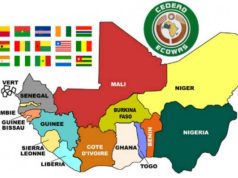More than 1,200 financial leaders, policymakers, regulators, and private sector executives have converged in Casablanca for the fifth edition of the Africa Financial Summit 2025, a high-level gathering dedicated to one urgent mission: unlocking Africa’s domestic capital to build lasting financial sovereignty. Kicking off on Monday, November 3, the two-day summit brings together top minds from across the continent and beyond to move beyond dialogue and deliver actionable strategies for transforming Africa’s financial architecture.
At a time when international capital flows are tightening, global interest rates remain elevated, and geopolitical tensions are reshaping investment patterns, African economies face mounting pressure to reduce their reliance on external financing. The Africa Financial Summit 2025 responds to this challenge head-on, positioning itself not as a forum for speeches, but as a platform for decisive action—aimed at turning vision into investment, and ambition into infrastructure.
“We urgently need to modernise our tools and mobilise our own capital, channeling it into strategic projects that consolidate our economic development,” said Amir Ben Yahmed, President of the Africa Financial Summit and CEO of Jeune Afrique Media Group. “This is about building a financial system that serves Africans first.”
With that goal in mind, the summit convenes an unprecedented assembly of public and private leaders to co-design solutions for a more integrated, resilient, and inclusive financial ecosystem. Among those taking part are Makhtar Diop, Managing Director of the International Finance Corporation (IFC); Jean-Claude Kassi Brou, Governor of the West African Central Bank (BCEAO); Abdellatif Jouahri, Governor of Bank Al-Maghrib; Jeremy Awori, CEO of Ecobank Group; Serge Ekué, President of the Development Bank of Western African States (BOAD); Nadia Fettah, Morocco’s Minister of Economy and Finance; and Ethiopis Tafara, IFC Vice-President for Africa.
The private sector is equally represented, with influential figures such as Aigboje Aig-Imoukhuede (Coronation Group), Mohamed El Kettani (Attijariwafa Bank), Amine Bouabid (Bank of Africa), and Abdeslam Alaoui Smaili (HPS) contributing to discussions on how financial institutions can lead the charge in resource mobilisation and market innovation.
Over the course of two days, debates will center on the foundational pillars of a sovereign financial agenda still in the making: deepening domestic capital markets, harmonising regional financial integration, regulating fast-growing fintech ecosystems, and aligning finance with Africa’s critical transitions—in energy, digitalisation, agriculture, and industrialisation.
A central theme is integration. Fragmented markets, cross-border regulatory barriers, and underdeveloped debt instruments continue to hinder large-scale investment. Participants are exploring concrete mechanisms—from pan-African payment systems like PAPSS to regional stock exchange linkages and local-currency bond markets—that can unlock liquidity and channel savings into productive sectors.
Fintech regulation also takes center stage, as digital platforms reshape access to credit, insurance, and payments. While innovation accelerates inclusion, regulators stress the need for frameworks that ensure stability, consumer protection, and interoperability—without stifling growth.
The summit further highlights the role of blended finance and catalytic capital. With the African Development Bank, IFC, and other multilateral partners supporting initiatives like the African Circular Economy Fund and the Sustainable Energy Facility, there is growing momentum to use public funds to crowd in private investment at scale.
Organised by Jeune Afrique Media Group in partnership with the IFC, a member of the World Bank Group, and supported by the Kingdom of Morocco, the Africa Financial Summit 2025 reflects a rising consensus: Africa’s future prosperity depends not only on what it produces, but on how it finances it.
As one participant put it: “We’ve spent decades building economies dependent on aid and commodity exports. Now, we’re building financial systems capable of funding our own dreams.”
In Casablanca, that dream is taking shape—not in theory, but in strategy, collaboration, and commitment.
Follow us on Instagram.
https://www.instagram.com/businessnewsng?igsh=ZXpweTdjOGF1ZXdu

























